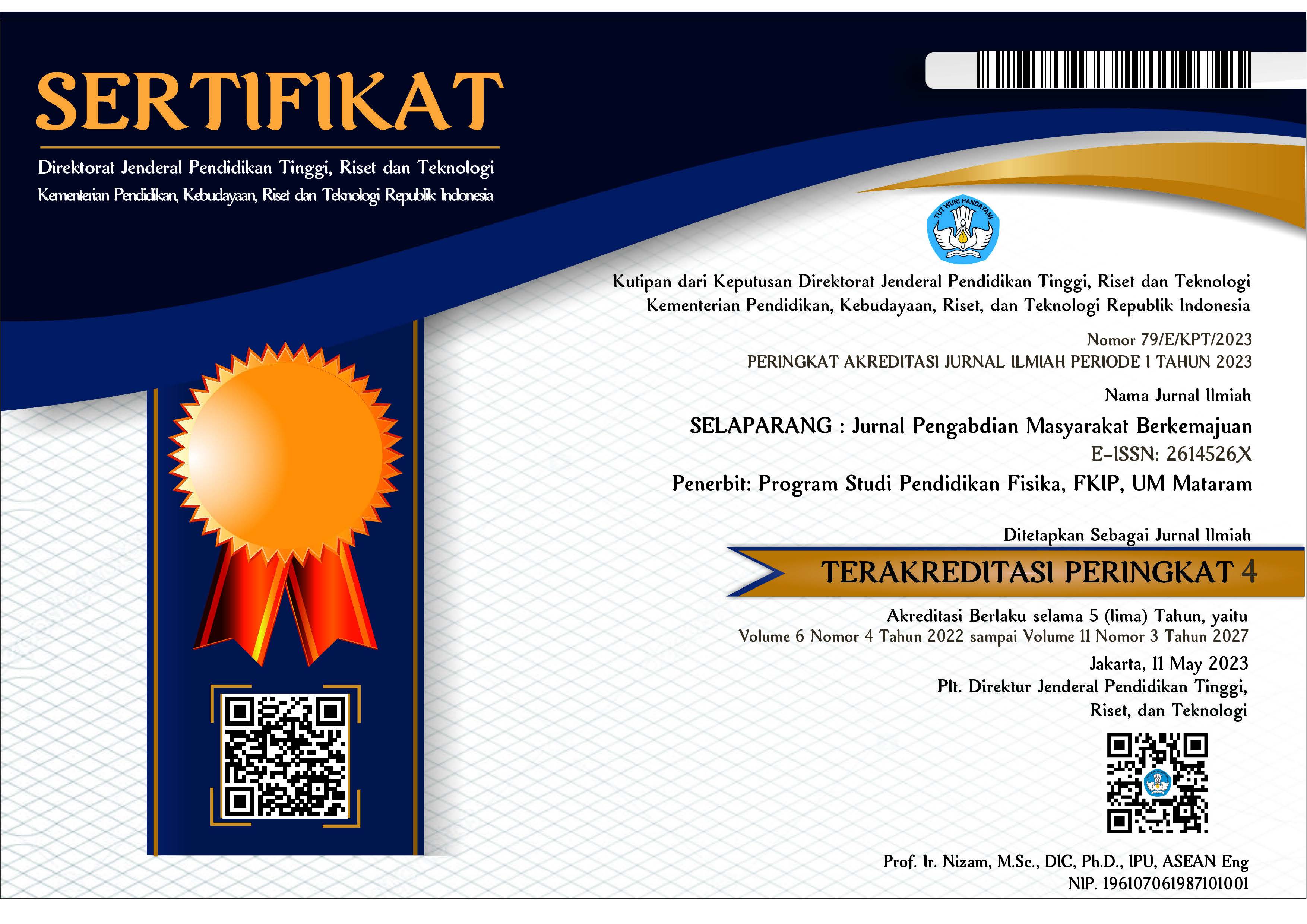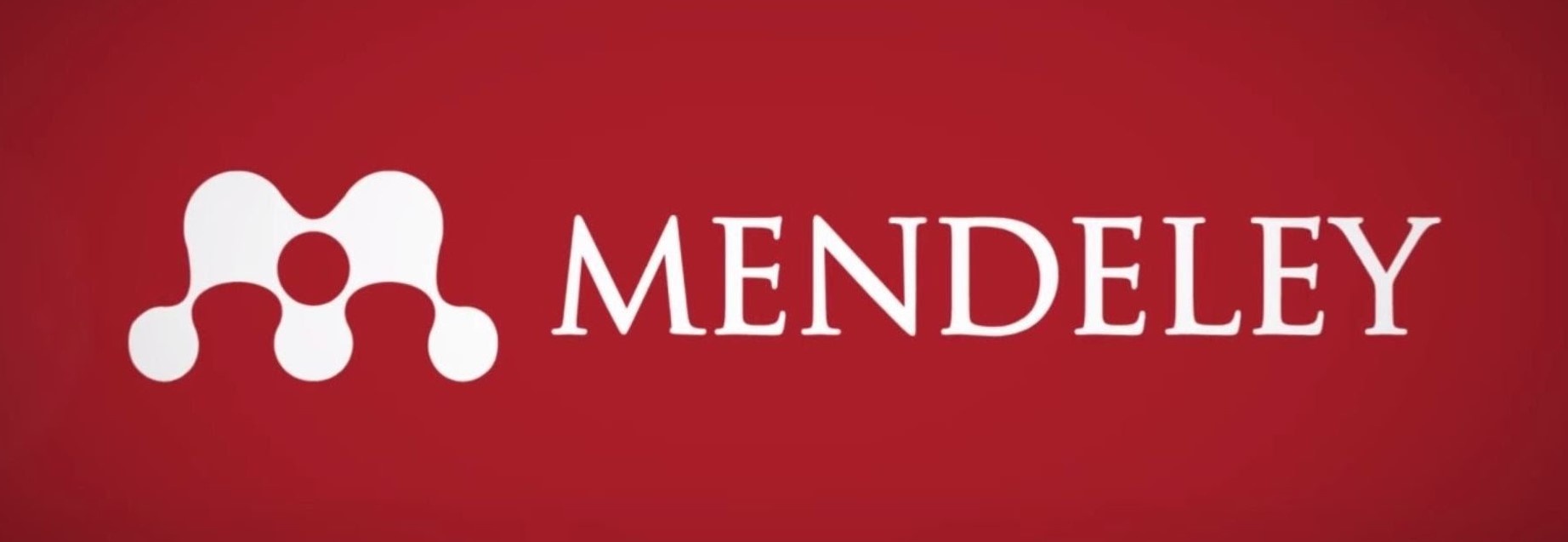PELATIHAN PEMBUATAN YOGHURT UNTUK GURU-GURU SMA KIMIA DI MGMP JAKARTA TIMUR 2
Abstract
Kementerian Pendidikan dan Kebudayaan Republik Indonesia sejak Februari 2022 telah menerbitkan Kurikulum Merdeka Belajar yang bertujuan untuk mengatasi ketertinggalan dan kesenjangan pembelajaran karena pandemi COVID-19. Penerapan Kurikulum Merdeka Belajar pada pembelajaran Sains memberi kesempatan para peserta didik untuk lebih melibatkan panca indra dan belajar lebih dekat dengan kesehariannya (muatan lokal) melalui pembelajaran lintas disiplin ilmu, yang tidak terakomodasi oleh mata pelajaran nasional. Oleh karena itu, perlu adanya kegiatan untuk meningkatkan keterampilan dan kreativitas guru tentang praktikum pembelajaran sains di sekolah dan kaitannya dengan pembelajaran kontekstual, yaitu pembuatan yoghurt. Yoghurt diyakini dapat meningkatkan imunitas tubuh saat dan setelah pandemik COVID-19 supaya sistem pencernaan menjadi sehat karena meningkatnya kekebalan tubuh. Pelatihan pembuatan yoghurt telah dilakukan oleh tim PkM KKN UNJ terhadap 35 guru kimia dari MGMP Kimia Jakarta Timur 2 di SMAN 39 Jakarta dan SMAN 81 Jakarta. Peserta kegiatan sangat bersemangat dan memiliki antusiasme tinggi selama kegiatan berlangsung. Kegiatan dapat meningkatkan keterampilan dan kesadaran guru-guru terhadap pentingnya pembuatan dan manfaat yoghurt untuk meningkatkan imunitas tubuh saat dan pasca pandemik COVID-19. Guru-guru SMA termotivasi untuk sharing dan menyampaikan informasi dan pengetahuan tentang yoghurt kepada masyarakat sekitar lingkungan dan penerapan Kurikulum Merdeka Belajar pada pembelajaran sains kontekstual yang digabung dengan pendekatan disiplin ilmu dan pendekatan pembelajaran berbasis eksperimen.
Kata kunci: kurikulum merdeka belajar; covid-19; MGMP kimia; yoghurt.
ABSTRACT
Since February 2022, the Ministry of Education and Culture of the Republic of Indonesia has published the Independent Learning Curriculum which aims to overcome learning loss and learning gap due to the COVID-19 pandemic. Application of its Curriculum into Science learning provides opportunities for students to involve five senses more and learn closer to their daily lives (local content) through cross-disciplinary learning, which is not accommodated by national subjects. The application of the Curriculum to learning Science provides opportunities for students to involved the five senses more and learned closer to their daily lives (local content) through cross-disciplinary learning, which is not accommodated by national subjects. Therefore, it is necessary to perform activities to improve the skills and creativity of teachers regarding science learning practicum in schools and its relation to contextual learning, namely yogurt production. Yogurt is believed to be able to increase the body's immune system during and after the COVID-19 pandemic into a healthy digestive system. Yogurt-production training was conducted for 35 chemistry teachers of East Jakarta 2 Chemistry MGMP members at SMAN 39 Jakarta and SMAN 81 Jakarta. The activity participants were very excited and enthusiastic during the activity. The current activity can enhance the teacher’s competence and awareness of yogurt benefits to increase body immunity during and after the COVID-19 pandemic. The teachers are motivated to share yogurt information and knowledge with the local community. They also intend to apply the combination of an Independent Learning Curriculum to contextual science learning, a scientific discipline approach, and an experiment-based learning approach.
Keywords: independent learning curriculum; covid-19; chemistry MGMP; yogurt.
Keywords
Full Text:
PDFReferences
Aswirna, P., Kiswanda, V., Nurhasnah, N., & Fahmi, R. (2022). Implementation of STEM E-Module with SDGs Principle to Improve Science Literacy and Environment-friendly Attitudes in Terms of Gender. In JTK (Jurnal Tadris Kimiya) (Vol. 7, Issue 1, pp. 64–77). https://doi.org/10.15575/jtk.v7i1.16599
Bonal, X., & González, S. (2020). The impact of lockdown on the learning gap: family and school divisions in times of crisis. In International Review of Education (Vol. 66, Issues 5–6, pp. 635–655). https://doi.org/10.1007/s11159-020-09860-z
Capcanari, T., Chirsanova, A., Covaliov, E., & Siminiuc, R. (2021). Development of Lactose Free Yogurt Technology for Personalized Nutrition. In Food and Nutrition Sciences (Vol. 12, Issue 11, pp. 1116–1135). https://doi.org/10.4236/fns.2021.1211082
Ciriza-Mendívil, C. D., Lacambra, A. M., & Hernández de la Cruz, J. M. (2022). Technological Pedagogical Content Knowledge: Implementation of a Didactic Proposal for Preservice History Teachers. In Frontiers in Education (Vol. 7). https://doi.org/10.3389/feduc.2022.852801
Elena Hadjimbei, George Botsaris, & Stavrie Chrysostomou. (2022). Beneficial Effects of Yoghurts and Probiotic Fermented Milks and Their Functional Food Potential. In Foods (Vol. 11, Issue 2691).
Kayisoglu, Ö., Schlegel, N., & Bartfeld, S. (2021). Gastrointestinal epithelial innate immunity—regionalization and organoids as new model. In Journal of Molecular Medicine (Vol. 99, Issue 4, pp. 517–530). https://doi.org/10.1007/s00109-021-02043-9
Le Hebel, F., Montpied, P., Tiberghien, A., & Fontanieu, V. (2017). Sources of difficulty in assessment: example of PISA science items. In International Journal of Science Education (Vol. 39, Issue 4, pp. 468–487). https://doi.org/10.1080/09500693.2017.1294784
Liu, E., Zheng, H., Shi, T., Ye, L., Konno, T., Oda, M., Shen, H., & Ji, Z. S. (2016). Relationship between Lactobacillus bulgaricus and Streptococcus thermophilus under whey conditions: Focus on amino acid formation. In International Dairy Journal (Vol. 56, pp. 141–150). https://doi.org/10.1016/j.idairyj.2016.01.019
Munajim, A., Barnawi, B., & Fikriyah, F. (2020). Pengembangan Kurikulum Pembelajaran di Masa Darurat. In DWIJA CENDEKIA: Jurnal Riset Pedagogik (Vol. 4, Issue 2, p. 285). https://doi.org/10.20961/jdc.v4i2.45288
Nagaoka, S. (2019). Yogurt production. In Methods in Molecular Biology (Vol. 1887, pp. 45–54). https://doi.org/10.1007/978-1-4939-8907-2_5
Namkung, J. M., Goodrich, J. M., Hebert, M., & Koziol, N. (2022). Impacts of the COVID-19 Pandemic on Student Learning and Opportunity Gaps Across the 2020–2021 School Year: A National Survey of Teachers. In Frontiers in Education (Vol. 7). https://doi.org/10.3389/feduc.2022.921497
Paz, D., Aleman, R. S., Cedillos, R., Olson, D. W., Aryana, K., Marcia, J., & Boeneke, C. (2022). Probiotic Characteristics of Streptococcus thermophilus and Lactobacillus delbrueckii ssp. bulgaricus as Influenced by Carao (Cassia grandis). In Fermentation (Vol. 8, Issue 10). https://doi.org/10.3390/fermentation8100499
Rings, E. H. H. M., Grand, R. J., & Buller, H. A. (1994). Lactose intolerance and lactase deficiency in children. In Current Opinion in Pediatrics (Vol. 6, Issue 5, pp. 562–567). https://doi.org/10.1097/00008480-199410000-00010
Sfakianakis, P., & Tzia, C. (2014). Conventional and innovative processing of milk for yogurt manufacture; development of texture and flavor: A review. In Foods (Vol. 3, Issue 1, pp. 176–193). https://doi.org/10.3390/foods3010176
Uduwerella, G., Chandrapala, J., & Vasiljevic, T. (2017). Minimising generation of acid whey during Greek yoghurt manufacturing. In Journal of Dairy Research (Vol. 84, Issue 3, pp. 346–354). https://doi.org/10.1017/S0022029917000279
DOI: https://doi.org/10.31764/jpmb.v7i4.19645
Refbacks
- There are currently no refbacks.

This work is licensed under a Creative Commons Attribution-ShareAlike 4.0 International License.
______________________________________________________
Jurnal Selaparang
p-ISSN 2614-5251 || e-ISSN 2614-526X
EDITORIAL OFFICE:



















